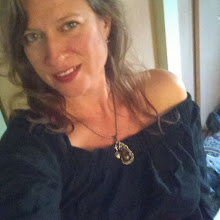"When I started frittering around with miniature cattle, everyone thought I was nuts," he says. Since the 1940s, US farmers have been breeding cows for size, making them much larger than their British cousins. But with Gradwohl's farm being swallowed up by rising taxes, he had to give up 60 acres of land. He discovered that it is possible to raise 10 miniature cows on five acres, rather than just two full-sized cows, meaning that land could yield up to three times as much beef – but the cows only need one third of the feed.
"These little cows were just right for me," he says. And, given worries about cows' contribution to greenhouse gases, it takes 10 mini cows to produce the amount of methane of one full-sized cow.
And,
Although they sound innovative, mini cows date back to the 1600s, says Gradwohl, when "British farmers developed small breeds because they only had five-acre farms". Now, with a bit of luck, more farmers of the 1.3 billion-strong cattle worldwide might also try them out for size.
Innovation and creativity in many areas can make a difference in pollution levels, nutrition, poverty levels, etc. worldwide.
So, Marcie, that sums up just one article at Daily Kos. That is one source of my reading material. I read all sorts of things from all sorts of places. I also regularly listen to NPR. I can't do it much, but more than I used to, because my kids would hear a story and ask me with their innocent countenances, "What does assassinate mean?" or, "What is genocide?" And although we get into serious, real discussions around here, I want my kids to be happy and not worry about the state of the world. I, as the woman I am, do plenty of that on their behalf.
We are having more and more involved discussions about these matters as they get older and can understand and have more of a context to file the information away.
But, kids get to be kids as far as I'm concerned.
We adults, however, should put away childish things and pay attention. We should try to understand what's going on and seek out information and learn. We should be critical of the voices which are bombarding us daily with competing messages and look at sources directly.
Which brings me to you, Marcie. You said,
"I have read a few sources of primary information on climate change and found information which is contrary to the message that you seem to have embraced."
I think you mean that you have read a few primary sources of information.
What have you read? What is the source? What is it filtered through--Fox News, discredited climate change denialist scientists?
What university studies have you read? What scientific journals?
I think a lot is riding on the human collective paying attention and making some fairly large, all encompassing changes in the very near future. I was feeling sad because I thought we'd already reached a tipping point. But, for the sake of my kids, and their kids, and their kids' kids, we can all act as if we haven't and get some things to change.
If you don't believe that global warming is a real man made phenomenon, would you still acknowledge that less pollution worldwide would be beneficial to all? Would a decrease in oil dependence be good, regardless of carbon output and whether that's bad or not? Would less plastic crap, with or without heavy metals, shipped over here from China be good for our kids' well being--spiritually, intellectually and physically, regardless of the pollution it causes in production in China and in landfills after 6 months or so of ownership here in the states?
Wouldn't some of the results of policies that are based on a global warming model ultimately have a positive effect regardless of whether you believe in global warming or not?
Wouldn't us not crapping up the earth be good?
Tag, you're it, Marcie.
Tell us where you get your information and how.





